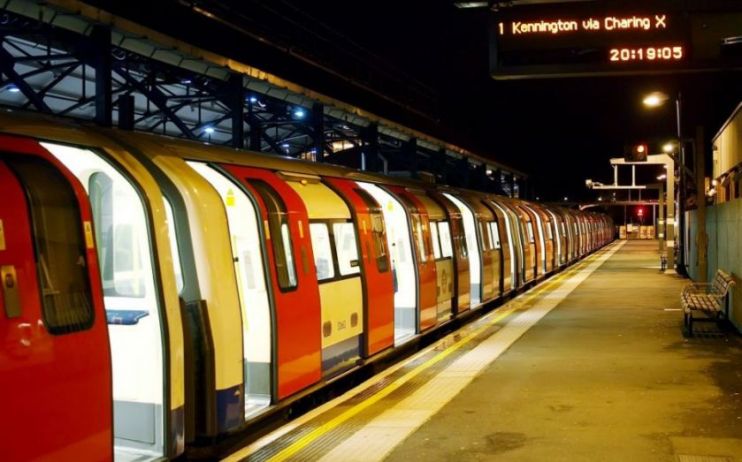The next Mayor must extend the Night Tube

The Night Tube only covers half of lines and doesn’t run on a Thursday – the busiest night for socialising in the City. Extending it would get London nightlife back on track, says Mimi Yates
If you’ve attempted a night out in the capital recently, you’ll recognise the scenario. After a few pints in the pub, which inevitably turfs you out at 11pm, you have to decide whether to head to one of the nightclubs which have not yet buckled under sky-high operating costs and restrictive licensing laws. This judgement call doesn’t just include how close to pay-day you are, or how tired you feel. One of the major factors is now, more than ever, the question of whether or not you’ll be able to get home safely.
Women feel this most acutely, particularly after a spate of high-profile attacks, including the horrific murders of Sarah Everard and Sabina Nessa. Almost half of women who were surveyed by London Travelwatch said they have stopped travelling in London at certain times of the day due to concerns for their personal safety. I’d wager there isn’t a single one of us who doesn’t have a story about the time someone sat next to us and pestered us on an empty night bus, or a time we carried our keys between our knuckles as we walked along the street, or made a loud, fake phone call hoping to deter potential attackers. There are now videos which you can play out loud which sound as though you are on a call with a concerned friend or partner asking where you are and what time you’ll be home.
Since its introduction in 2016, the Night Tube has been one of the safest and most popular ways to get revellers and night-workers back home. According to TFL, there are 70,000 journeys every Saturday on the Night Tube and the night overground services. Following the murder of Sarah Everard during the Covid lockdown, over 180,000 signed the petition to reinstate the Night Tube, which highlighted that “the running of a well-lit and well-connected tube network, with platform CCTV and appropriately trained security staff serves as the best transport option to ensure millions of women across London can get home safely in the evenings and at night.”
Although the existing Night Tube was fully restored in July 2022, it still does not cover five out of 11 lines, nor does it run on a Thursday evening, the most sociable night of the week for many readers of City A.M.
A further expansion is clearly required. London Mayoral Candidate Susan Hall has taken a good first step by pledging to immediately extend the Hammersmith & City line, which incorporates much-loved nightlife institutions just a short walk away from the Square Mile such as Fabric nightclub, and later the Circle, District and Metropolitan lines. The Incumbent Mayor has now made a similar commitment.
Even if the safety aspect does not persuade you, extending the Night Tube would provide a much needed boost to London’s night-time economy. The standard business case, made in a report for TFL, outlined that, for each pound spent on delivering the Night Tube, the benefits add up to £2.70. When the wider economic impacts are added in, these benefits increase by a further £1.20 for every pound.
The Night Tube is no silver bullet for London’s ailing night-life. Proponents of the service, rightly, say that its expansion could mean that bars, clubs, restaurants and theatres could stay open later, but this will never take effect unless we curb the worst excesses of our puritanical local licensing and planning rules. But it would get the city back on the right track.
Mimi Yates is director of engagement at the Adam Smith Institute